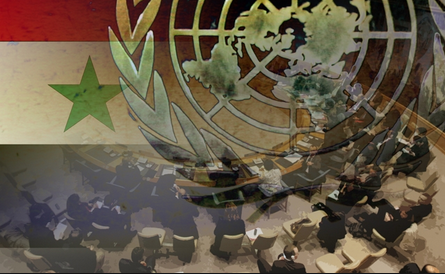Tulsi Gubbard stressed that “for years, the US government has supported opposition armed groups that, in their struggle to overthrow the official Syrian government, interact with various terrorist organizations such as Islamic State and Al Qaida, and are often under the command of the terrorists. Instead of spending trillions of dollars on wars aimed at changing the regimes in the Middle East, we should focus on defeating terrorist groups and invest our resources in building peaceful life and favorable living conditions at home. ”
According to Gabbard, “the fact should disturb every American that the money of American taxpayers go to strengthen terrorists.”
Shortly before leaving the White House Barack Obama signed a decree authorizing the supply of arms to Syrian groups, ‘whose interests overlap with the interests of the United States.’ It was not specified what are exactly the forces in Syria the law is talking about.
4 things to our knowledge about Tulsi Gabbard:
According to CNN’s report, Gabbard is being considered for jobs at the Defense Department, State Department and the United Nations, the source said.1. Gabbard Is Being Considered for Jobs at the Defense Department, State Department & the United Nations.
The 35-year-old representative has criticized President Barack Obama for not saying “radical Islam” and suggested that he had been weak on Syria, according to the Washington Post.
Gabbard has declined to co-sponsor gun control legislation, including H.R.4269— the Assault Weapons Ban of 2015 — which is co-sponsored by 125 of Gabbard’s fellow Democrats.
She was one of 47 Democrats who voted in favor of a Republican-sponsored bill that requires refugees from Iraq and Syria to receive background checks from the FBI.
Gabbard stepped down from her post as a vice chairwoman of the Democratic National Committee in the primaries to support Vermont Sen. Bernie Sanders.
Gabbard, who disagreed with Hillary Clinton’s foreign policy stance, said she endorsed Sanders mainly because of his more prudent approach to military involvement broad.
“As a veteran of two Middle East deployments, I know firsthand the cost of war,” Gabbard said in a video for the Sanders campaign. “I know how important it is that our commander in chief has the sound judgment required … to know when to use America’s military power and when not to use that power.”
She announced she would vote for Clinton days after the DNC ended.
Tulsi’s 2005 deployment was a 12-month tour at Logistical Support Area Anaconda in Iraq, where she served in a field medical unit as a specialist with a 29th Support Battalion medical company. She was awarded the Meritorious Service Medal at the end of this tour.
In between her two tours, Tulsi served in the U.S. Senate as a legislative aide to Democratic Senator Daniel Akaka.
In 2009 she again voluntarily deployed with her unit to the Middle East. During this second deployment, she led her platoon on a wide variety of security missions, and also conducted non-military host-nation visits and served as a primary trainer for the Kuwait National Guard.
4. Gabbard was in Syria and met B. Assad.
Courtesy of Gabbard’s biography:
4 things to our knowledge about Rand Paul:
1. Sen. Paul wants to end President Obama’s Immigration Action.Senator Rand Paul (R-Kentucky) has entered the 2016 presidential race with the campaign slogan “defeat the Washington machine.” Yet his views and past legislative actions on immigration show that he is more likely to maintain the status quo of leaving reform in limbo rather than push forward meaningful reforms that harness the skills and talents immigrants bring to the U.S. Despite Sen. Paul’s public statements that the GOP needs to “welcome” immigrants, Sen. Paul’s actions during his first-term in congress highlight how he would rather put his energy behind enforcement measures than backing realistic, sensible policies to improve the well-being of all immigrants.
In December 2013, the House of Representatives approved a bill filed by Rep. Ted Yoho (R-FL) that would block President Obama’s executive action on immigration. Sen. Paul introduced companion legislation in the Senate because he believes that “our Constitution is being violated by this executive order and other actions by the Obama Administration to govern by executive fiat.” More than a hundred legal scholars disagree with Sen. Paul, noting that deferring deportation for up to 4 million immigrants is well within the President’s executive authority.
2. Sen. Paul voted against the 2013 comprehensive immigration reform bill.
Sen. Paul voted against the 2013 comprehensive immigration reform bill S. 744 passed by the Senate because it did not include the completion of a border fence in 5 years or include a national identification card for U.S. citizen. He tried to pass his “Trust but Verify ” amendment with S. 744, which would include implementing these enforcement measures. This amendment was rejected by the Senate.
3. Sen. Paul wants costly enforcement-first measures implemented before fixing our immigration system.
On his campaign website, Sen. Paul says in a video that “millions of illegal immigrants are crossing our border without our knowledge and causing a clear threat to our national security” and continues to advocate for a border fence stretching the 1,969 mile U.S.-Mexico border before action on comprehensive immigration reform can move forward. Sen. Paul’s stance is more of the same enforcement-first policies that have been held over the past three decades, which have cost taxpayers $186.8 billion.
4. Sen. Paul introduced legislation to end birthright citizenship.
In June 2011, Sen. Paul introduced a bill with Senator David Vitter (R-LA) that would amend the Constitution to end birthright citizenship because “citizenship is a privilege, and only those who respect our immigration laws should be allowed to enjoy its benefits.” While the bill was never brought to a vote, the introduction of this bill shows that Sen. Paul is more interested in reinforcing immigration myths that distract us from finding solutions to the problems facing our outdated immigration system.
It’s Time to Continue a ‘Russia-US’ Dialogue on Syria
The US Department of Defense called on to expand the channels of communication with Russia so that to ensure security in the world. According to the Pentagon, closer communication with the Russians will help to prevent conflicts in Europe, Syria and the Pacific.
“In case of a crisis, I want to have a number of open communication channels so that we can talk in real time,” – said the 19th chairman of the Joint Chiefs of Staff, General Joseph Dunford.

The sides have already started creating a new communication channel. It is supposed that it will allow working even more successfully to reduce the risk of confrontation in future. This was reported by the press secretary of General Dunford. The parties discussed the creation of a new communication channel on March during the meeting in Antalya, Turkey, with the chiefs of staffs of the Armed Forces of Russia and Turkey.
In recent years, incidents between Russian and US military have become more frequent. They include a dangerous rapprochement and ‘unprofessional behavior’ of pilots and crews of warships.
5 things to our knowledge about Gen. Joseph Dunford:
BackgroundFollowing in dad’s footsteps
Dunford, 59, joined the Marine Corps in 1977, following in the footsteps of his father, a Marine who served in Korea and later became a Boston police officer. Raised in South Boston and later Quincy, Massachusetts, he’s a die-hard Red Sox fan who kept team caps in his office in Kabul during his 2013-14 Afghanistan tour as the top U.S. commander there. President Barack Obama, during Tuesday’s announcement at the White House, noted: “The only downside in my book is as a White Sox fan, there is yet another Red Sox fan who I’m going to have to be dealing with.”
He’s Irish Catholic, the same as the current chairman, Gen. Martin Dempsey. He attended St. Michael’s College in Colchester, Vt., Georgetown University, and the Fletcher School of Law and Diplomacy at Tufts University in Massachusetts.
“Fighting Joe”
He earned the nickname “Fighting Joe” when he led the 5th Marine Regiment during the 2003 invasion of Iraq, and is known as a relentless, energetic commander. His staff members sometimes carry a voice recorder with them to keep up with his commands and ideas.
Talking to troops
His selection as the nominee for chairman was hailed on the Marine Corps’ Facebook page with the customary Marine salute: “Ooh-Rah, Sir!” But Dunford’s own Twitter account had no mention of the announcement, in keeping with his usual self-effacing, soft-spoken nature. Known for his compassion with troops, Dunford often sent handwritten condolence letters to families of the fallen. But he also would talk at length about the toll the Afghanistan war was having on the local forces, and while serving in Kabul he would attend weekly services honoring the Afghans who were killed in the fight.
On the list
He was #7 on Fortune magazine’s list of the “World’s 50 Greatest Leaders” in 2014. The magazine quoted Dunford as saying that his first battalion commander told him the three rules to success. The first? Surround yourself with good people. “Over the years,” said Dunford, “I’ve forgotten the other two.”
Courtesy of Dunford’s biography:
UN Security Council calls on Damascus and Syrian Opposition for a Dialogue
According to a press statement adopted by the members of the Security Council on March 11, 2017, the UN Security Council expects the resumption of negotiations on Syria between the official Damascus and the opposition groups in Geneva.
The UN Security Council called on all the parties for a constructive dialogue without preconditions. The members of the UN Security Council declare that the conflicting parties to fully comply with the cease-fire agreement signed on December, 29, 2016.
According to the UN SC main statements, The International Syria Support Group (ISSG) should influence the warring parties so that to stop violations, to reduce the level of violence, to strengthen the mutual trust and to ensure the unhindered and safe delivery of humanitarian assistance in accordance with UN Security Council Resolution 2165.
The UN Security Council once again confirmed that it still supports the sovereignty, independence, unity and territorial integrity of Syria and noticed that the intro-Syrian talks became possible thanks to the process in Astana.
The beginning of a new round of talks on Syria is scheduled on March, 23.

